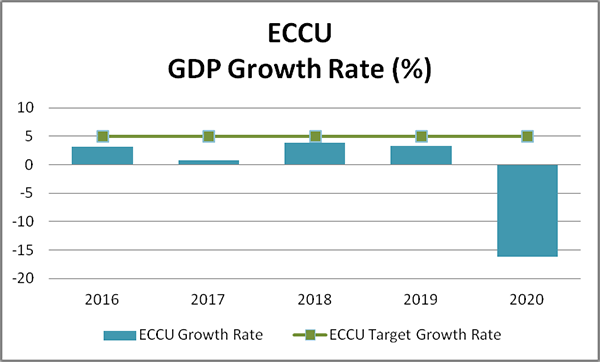republic onboarding
Internet Banking
-
Savings & Chequing
-
Savings Accounts
Growing up with a plan for tomorrow
For youths between the ages 13 to 19 years
Shape your future
Helps you to build your nest egg
Saves you time and money
The wise investment instrument
Earn more on your Foreign Accounts
Chequing Accounts
Bank FREE, easy and convenient
A world of convenience and flexibity
Invest and enjoy the best of both worlds
A value package designed for persons 60 +
Life Stage Packages
Banking on your terms
Getting married?
Tools & Guides
Make an informed decision using our calculators
Help choose the account that’s right for you
All Our Cheques Have A New Look!
-
-
Electronic Banking
-
EBS Products
Open a deposit account online
Pay bills and manage your accounts easily
Banking on the Go!
Welcome to the Cashless Experience
Top up your phone/friend’s phone or pay utility bills for FREE!
EBS Products
Make secure deposits and bill payments
Access your accounts easily and securely with the convenience of Chip and PIN technology and contactless transactions.
Access cash and manage your money
Where your change adds up
-
-
Credit cards
-
Credit Cards
Credit Cards
Additional Information
-
-
Prepaid Cards
-
Pre-paid Cards
-
-
Loans
-
overview
To take you through each stage of life, as we aim to assist you with the funds you need for the things you want to do
We make it easy to acquire financial assistance for tertiary education through the Higher Education Loan Programme
We make it easy, quick and affordable to buy the car of your dreams
Tools & Guides
Helps you determine the loan amount that you can afford
You can calculate your business’ potential borrowing repayments
Republic Bank's Group Life Insurance will provide relief to your family by repaying your outstanding mortgage, retail or credit card balance in the event of death or disablement.
-
-
Mortgages
-
Mortgage Centre
Republic Bank Limited can make your dream of a new home a quick and affordable reality
New Customers
Block for MM- new user mortgage process
There are three stages you must complete before owning your first home
Tools & Guides
block for MM - personal - mortgages
-
-
Investments
-
Investment Products
-
Lights Out for the ECCU Economies?
You are here
Home / Lights Out for the ECCU Economies?
Part 1: COVID-19- Total Foe or Some Silver Lining?
We’ve come to the time of the year that’s best used for looking back and moving forward. In the spirit of new beginnings, I’d like to spend the next few weeks reflecting on the many changes the economies of the Eastern Caribbean Currency Union (ECCU) have experienced over the last year and where we may go from here.
This time last year, the ECCU was on a path of moderate economic growth. Its growth had weakened slightly to 3.3 % in 2019 (amid a weaker global economy and in the wake of hurricanes Maria and Irma) compared to 3.8 % 2018 and was projected to grow by 3.2% in 2020. Not quite where we wanted to be, but still, there was progress and more than that, there was optimism.
Of course, we know what happened next:

An urgent health crisis in the shape of a global pandemic. Over one million lives lost worldwide and countless others at risk. Closed borders, lockdowns and social distancing measures that saved precious lives but changed consumer behaviour, perhaps forever, and drastically supressed economic activity. All devastating blows for the ECCU’s tourism-dependent countries, which are now facing a significant decline in tourism activity, a corresponding rise in debt and unemployment, and lower remittances as countries like the US go into recession.
From this perspective the pandemic paints a picture of a formidable foe, stifling the promise of our Region and tearing at the very fabric that keeps our society together. For many of us, there was a time when the pandemic looked like the beginning of the end but now that the initial chaos has died down, I see a different perspective emerging. Is it possible that this radical and painful reset could be a new beginning? Can COVID-19 be a propeller for change?
In all of the upheaval of this year, there was still a lot of hope. The countries of the ECCU have been models of success in mitigating the spread of the COVID-19 within their borders. Thanks to the quick and decisive action taken towards early detection and treatment of positive cases, the Union has managed to keep its number of active cases low and some countries (Dominica, Saint Vincent and the Grenadines, Anguilla, Saint Kitts and Nevis, and Grenada) have had no COVID-19 related deaths at all. We also saw unprecedented levels of cooperation across the Union as governments, corporate leaders and communities came together to show an outpouring of empathy, care and support for our frontline workers and society’s most vulnerable.
This has also been a golden opportunity for countries, regions, businesses and individuals to question models, approaches which held as true and the only way for time immemorial. We’ve found that our teams can be just as productive when working remotely as they are in the office and that we can still collaborate and exchange ideas without meeting face-to-face. We’re finding new and more efficient ways to monitor employee progress, manage supply chains, deliver products or services and I could go on.
Back in August, in an attempt to recognise the creativity and resilience of our business communities, we asked our customers and staff to #BeTheOne by nominating businesses who were doing great work during the pandemic. While time and space won’t allow me to list them all here, I can say that the nominations spanned virtually every sector of our economy. From the hotelier who converted his business into a quarantine facility, to the hairdresser who quickly adopted digital payment methods to facilitate her daily transactions, to the garment manufacturer who pivoted to mask production and secured a lucrative contract – it is safe to say that in this age of turbulence, we are redefining what it means to be agile and responsive to the needs of the people we serve.
I would love to see us push this new wave even further to the continued benefit of the ECCU because for all the changes we have experienced in this year, there is still much that we can change for the better. Can we use the current upsurge in entrepreneurial activity to fuel our efforts at economic diversification? Can we use this as an opportunity to advance our steps toward regional integration across the ECCU? Is this an opportunity to accelerate Financial Integration? Not only do I say yes to all of the above, but I say grab it like a sure lottery number and run with it.
Next week, we’ll talk more about where we can place our focus to achieve these goals. Until then then please feel free to tell me your thoughts in the comments.
COMPANY INFORMATION
Banking Segments
Press & Media
Contact Us
© 2025 Republic Bank Limited. All Rights reserved.







 Michelle Palmer-Keizer
Michelle Palmer-Keizer
